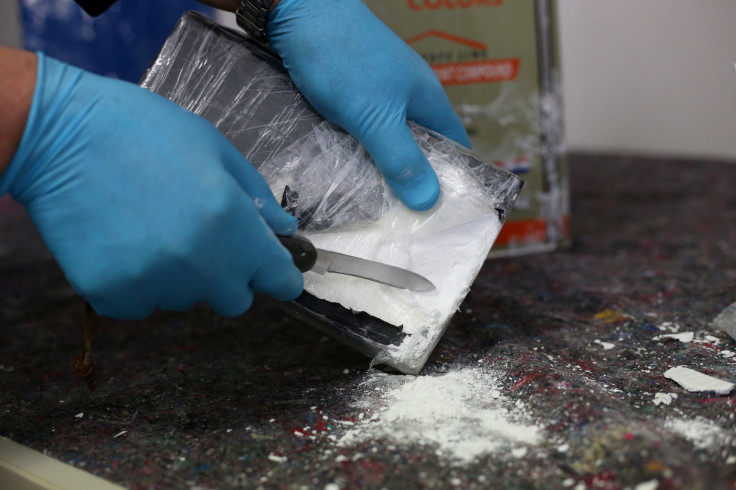Is drug trafficking in the UK increasing?
This year it was revealed that the largest amounts of Class A drugs have been seized in the UK. The drug industry in Britain makes around £200 billion per year.

This year, the government revealed that the largest amounts of cocaine and ketamine have been seized by the Border Force and the police in the UK.
In the year ending March 2022, Border Force units and the police seized over 18,767kg of cocaine, 1,412kg of heroin, and 43kg of crack cocaine. The Border Force and the police also seized 35.436kg of cannabis, 1,837kg of ketamine, and 243kg of amphetamines.
The drug industry in the UK makes around £200 billion per year. The majority of the payments are spent on drugs being smuggled into the UK from other countries.
The most common methods of trafficking drugs into the UK are via cargo freight containers on ships or through passengers arriving by air or sea. The other popular methods of drug trafficking include light aircraft arriving illegally through hidden packages and luggage and through small airports.
It was estimated that between the years 2019 and 2020, more than 1.1 million people had used Class A drugs in the UK. The government expect that there was a slight 15 per cent decrease in drug use in 2020, due to COVID-19.
Delamere, an addiction treatment and behavioural health clinic, note that the regions with the highest rates of drug use are Yorkshire and the Humber, the East Midlands, and London.
Delamere found that 31 per cent of the population in Yorkshire and the Humber use drugs. The East Midlands and London fall slightly behind at 30 and 21 per cent.
Drug production and trafficking are exacerbating an array of other criminal economies in the Amazon Basin that have a negative impact on the environment and on communities.
— UN Office on Drugs & Crime (@UNODC) June 29, 2023
More in the #WorldDrugReport: https://t.co/o3RXf5qCUO pic.twitter.com/q192TLUlDW
According to The Mix, 90 per cent of the world's heroin consumption comes from Afghanistan. The heroin is transported from Afghanistan, through USSR countries, into Turkey and Greece, and then shipped to Marseilles and driven into the UK.
Delamere also recorded that women had the highest overuse of prescription and over-the-counter drugs, such as Diazepam, Ritalin, Nytol or Sudafed. Men, however, were more likely to have taken illegal drugs in their lifetime. The most common drug across all of the individuals studied, was cocaine.
Columbia is the world's biggest source of cocaine. The cocaine is then moved through the Caribbean and then put onto a cargo ship to the UK.
Professor Sir Cary Cooper, an Advisory Board Member at Delamere, revealed: "Whether the source of stress is due to work or home, it's undeniable that one of the ways stress manifests itself is with the use of alcohol or drugs."
In the year ending March 2022, Border Force officers and the Police managed 188,929 drug seizures across England and Wales.
Steve Dann, the Border Force Chief Operating Officer warned: "These seizures send a clear message to anyone prepared to smuggle illegal drugs into the country that we remain committed to tackle often violent and exploitative drug supply chains."
A major National Crime Agency operation against a suspected organised crime group that imported around 1.6 tonnes of cocaine into the UK has resulted in two arrests.
— National Crime Agency (NCA) (@NCA_UK) June 16, 2023
Full story ⬇️ https://t.co/jddgrvLBpt pic.twitter.com/jOZrjdKCOX
On June 16, there were two arrests in Leicestershire over a cocaine haul hidden in charcoal. 800 sacks that carried 1.6 tonnes of cocaine were found by the Border Force at Gatwick airport, which had arrived from Panama. The importation of cocaine was expected to be worth more than £120 million.
Jacque Beer, the Regional Head of Operations at the National Crime Agency said: "This operation has prevented a huge amount of... violence and exploitation."
On June 22, Darryl Sellars attempted to smuggle hundreds of kilos of cocaine into the UK. He was affiliated with an organised crime group and was sentenced to 13.5 years in prison. The National Crime Agency revealed that the drugs were worth around £23 million.
After Darryl Sellars's arrest, the authorities found that he had "searched the internet for 'helpful tips when dealing with police sniffer dogs' and 'how to conceal drugs from drug-sniffing dogs'".
The Senior Investigating Officer for the National Crime Agency said: "Organised crime groups need smugglers like Sellars to bring their contraband into the UK. His was an important role in a wider criminal network."
© Copyright IBTimes 2025. All rights reserved.






















